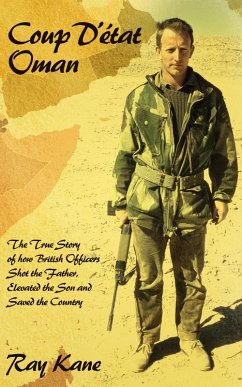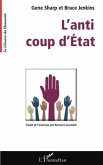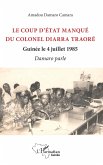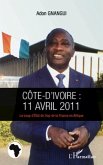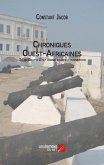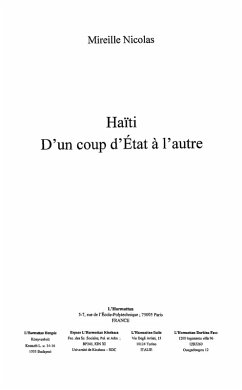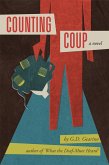"Ray Kane's memoir of his time in the Army is a hugely evocative and often very funny read, full of colourful details and memorable anecdotes. From Oman to Cyprus, Kane saw Britain's retreat from Empire at first hand and more than played his part in a story we seldom really appreciate. What was more, he even carried out the only coup in living memory led by British military officers. It's a great story, told with wit, gusto and a storyteller's flair. I enjoyed it enormously."
Dominic Sandbrook
"For sheer brio, few of the many works published on the Dhofar campaign can match Ray Kane's riveting account. Written with admirable candour by a man who truly experienced the sharp end of that most bitter of insurgencies, this book will be essential reading for all those interested in Anglo-Omani relations, and in particular, how the longevity of the al-Bu-Said dynasty was really secured."
Professor Clive Jones, Durham University
Prologue
LIKE slow moving lava, viscous, dark red venous blood seeped from beneath buttocks and legs. On the wall behind, the heavy 7.62 mm bullets passing through the unknown man's upper body had splattered bright red arterial blood roughly tracing its ex-owner's outline. Leaving the body soaking in its blood-lake, we tackled the labyrinth again. I climbed up through a skylight and jumped onto a flat roof. Bullets thudded beneath my feet. The Sultan was below, had heard me land and was firing into the ceiling. We had him trapped.
Dropping down a two-metre wall landed me onto a patio next to a glass door. Captain Richard and his light-machine-gun (LMG) team were across the patio. A group of al-Hawasina askars appeared on the palace's top-most roof. We were outnumbered. Hopefully the bribe was still working. I tried the door handle locked. I butt-stroked the glass panel armoured, and made by Pilkington, I read in the bottom right hand corner. Signalling to Captain Richard, I drew a white phosphorous grenade and hugged the wall behind a column by the door. Captain Richard rested his LMG on a soldier's back and maintaining the same aim point, fired 2-round bursts at the door from 15 metres range and within 30 centimetres of my left shoulder. Whining bullets ricocheted around the patio. A hole appeared in the glass, expanded gradually by double hits travelling at 836 metres per second from the LMG.
A hole appeared also in the Command Group's confidence. My name, shouted from outside the palace, brought me to the patio parapet. Sheltering below behind a building corner, Lieutenant Colonel Teddy Turnill, Desert Regiment's Commanding Officer, shouted again. He ordered me to withdraw, adding that he intended to negotiate with the Sultan; behind him, Captain Tim Landon, Intelligence Officer and Qaboos' Sandhurst friend, added his voice. Teddy was taking counsel of his fears, or of someone else's. Fuck that, I thought. I assured them that it was nearly over, ignored their protestations and went back to work.
Aged 25 years, I had come a long way from the damp, emerald-green turf of County Kildare, Ireland, to fight someone else's war in Oman's parched brown deserts, mountains and wadis and in its Sultan's palace.
Dieser Download kann aus rechtlichen Gründen nur mit Rechnungsadresse in A, B, BG, CY, CZ, D, DK, EW, E, FIN, F, GR, HR, H, IRL, I, LT, L, LR, M, NL, PL, P, R, S, SLO, SK ausgeliefert werden.

